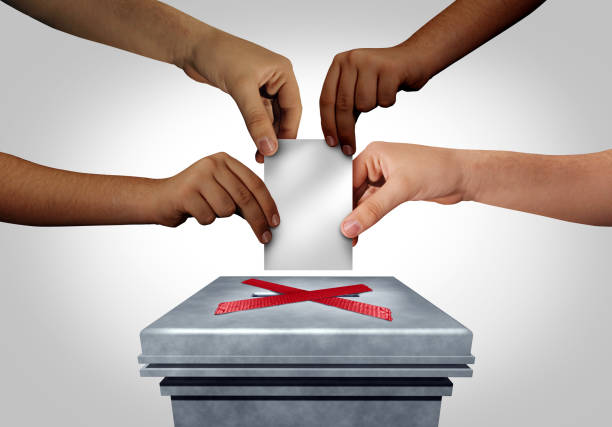
The way in which a society organizes itself is the primary determinant of individual health. When people feel excluded, powerless, insecure at their jobs, when people feel they have no agency individually, or collectively, over their own lives, these things all lead to poor individual health outcomes. These are described as social determinants of health by the World Health Organization. In a democracy, people have the power through representatively elected bodies to alter the social contract between governor and governed whenever injustices need to be addressed and corrected. This collective action is paramount to avoid the sustained adverse health impacts of social inequality. In a democracy where minority votes are segregated by gerrymandering, where an electoral college exists to undermine the will of the majority, injustice is perpetuated.
 Efforts exist locally, state-wide, and even at the federal level to disenfranchise voters of color, and people of low socio-economic status. But even when their votes do get cast and counted, they are collectively disenfranchised by having their political power diluted and muted by the electoral laws currently in place. There should be a national popular vote for president instead of the battle that currently takes place in only a few swing states. There should be proportional representation instead of winner take all. Gerrymandering should not exist. District lines should strive for heterogeneity and inclusion, not homogeneity to compartmentalize minority votes into fewer elected officials. If popular campaigns are to be the means, then no moneyed interests should be permitted to interfere with elections whether from Russia or Wall Street. Political bribery under the rubric of ‘lobbying’ should not exist.
Efforts exist locally, state-wide, and even at the federal level to disenfranchise voters of color, and people of low socio-economic status. But even when their votes do get cast and counted, they are collectively disenfranchised by having their political power diluted and muted by the electoral laws currently in place. There should be a national popular vote for president instead of the battle that currently takes place in only a few swing states. There should be proportional representation instead of winner take all. Gerrymandering should not exist. District lines should strive for heterogeneity and inclusion, not homogeneity to compartmentalize minority votes into fewer elected officials. If popular campaigns are to be the means, then no moneyed interests should be permitted to interfere with elections whether from Russia or Wall Street. Political bribery under the rubric of ‘lobbying’ should not exist.
There is much that needs to be done. Those who oppose electoral reform want to keep power concentrated in the hands of the wealthy few for their own benefit. This is very costly in terms of health. It is this wealth gap between the highest and lowest rungs of society which best correlates with a nation’s health. Japan and Sweden are two of the most egalitarian societies and, as a result, have substantially high life expectancy and low infant mortality. Countries like the United States with a much higher gap between rich and poor, fare much worse by all measures of health and wellness. If the U.S. eliminated all cancer deaths, we still would not be as healthy as Japan.
If deaths from intentional and unintentional injuries are factored out, the United States closes the gap but still lags behind. This is because racism and class warfare are co-morbid underlying causes, they kill as effectively by cancer as by bullets. The stress from being excluded and treated as socially inferior inflames biological pathways that lead to and quicken the pace of developing cancer. An empirical meta-analysis of death rates shows that up to one third of all deaths in the U.S. can ultimately be attributed to inequality. Although the proximate cause of death might range from gun violence to heart disease to cancer, the underlying difference in longevity between the U.S. and healthier countries is attributable to the inequality structurally embedded into our nation and our institutions.
 In a functional democracy, those who are governed have the collective ability to change the way society is organized within the State. This is not the case in the U.S. today ─ the social contract has been abrogated by class power. Social reform should not rely on the self-awareness and self-correcting policies of the wealthy elite. Those who are victimized by social inequality were meant to have the political capacity to address the injustices that cause their suffering. This cannot happen without electoral reform. It is a health issue as much as it is a political issue.
In a functional democracy, those who are governed have the collective ability to change the way society is organized within the State. This is not the case in the U.S. today ─ the social contract has been abrogated by class power. Social reform should not rely on the self-awareness and self-correcting policies of the wealthy elite. Those who are victimized by social inequality were meant to have the political capacity to address the injustices that cause their suffering. This cannot happen without electoral reform. It is a health issue as much as it is a political issue.



Join the Conversation